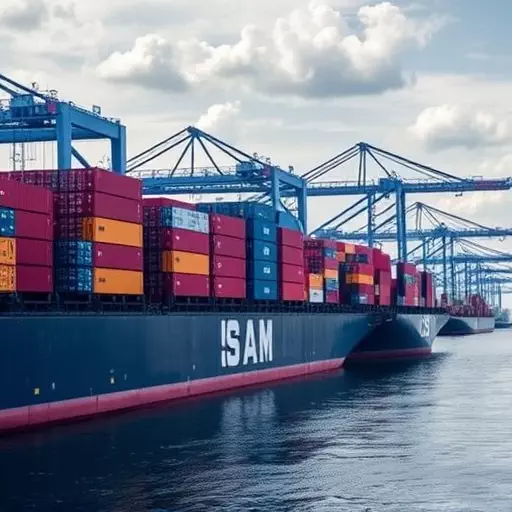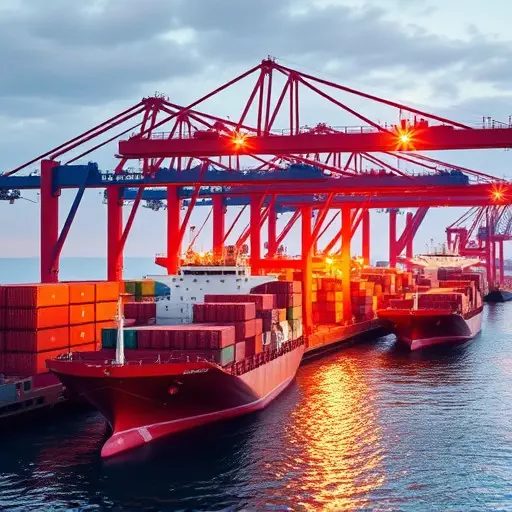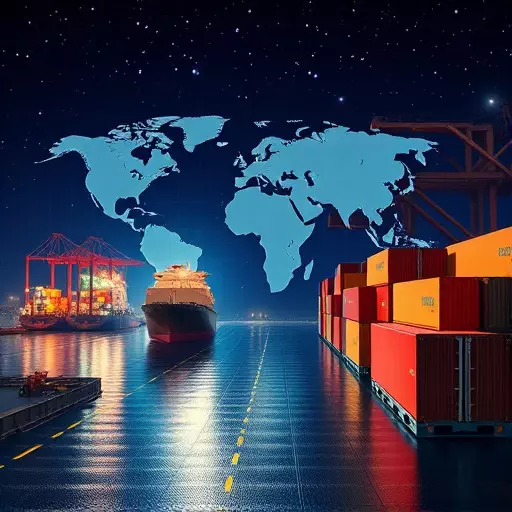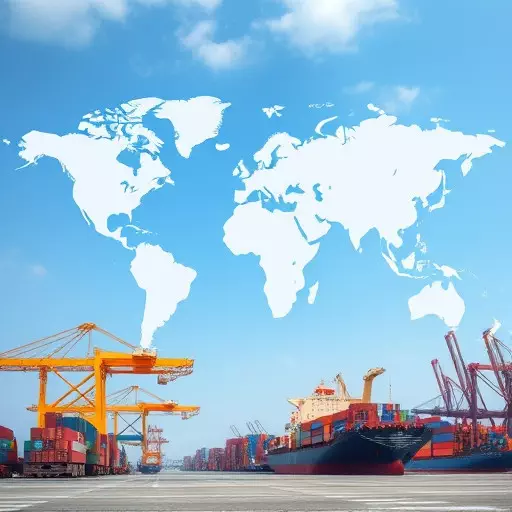Exporting from Holland, Ohio, requires strict adherence to international shipping standards, particularly ISPM 15, to prevent pest and disease spread. Proper documentation, marking, and treatment of wooden packaging materials are vital for efficient exports, maintaining reputations, and avoiding penalties or restrictions. Non-compliance can disrupt supply chains, incur legal issues, and damage businesses' reputations in the bustling global logistics landscape.
- Understanding Export Licensing Requirements: An Overview
- International Shipping Standards and Compliance: A Global Perspective
- ISPM-15: The Essential Guide for Wood Packaging Material
- Navigating Export Regulations in Holland, Ohio: Local and International Rules
- Global Shipping Regulations: Country-Specific Considerations
- Ensuring Compliance: Best Practices for Importers and Exporters
- The Impact of Non-Compliance: Consequences and Prevention
Understanding Export Licensing Requirements: An Overview

Export licensing requirements are a crucial aspect of international shipping and trade, ensuring compliance with global shipping regulations. For businesses involved in exporting goods from Holland, Ohio, or any other location, understanding these regulations is essential to avoid legal issues and delays. The International Shipping Paperwork Manual (ISPM 15) is one such standard that outlines the documentation and procedures for exporting various commodities, particularly wooden packaging materials.
Compliance with ISPM 15 is vital to meet international shipping standards and prevent the spread of pests and diseases. This manual provides guidelines on how exporters should prepare and mark their shipments, ensuring they contain the necessary certificates and treatments to satisfy global shipping regulations. By adhering to these requirements, businesses can streamline their export processes, maintain a positive reputation, and avoid potential penalties or restrictions.
International Shipping Standards and Compliance: A Global Perspective

International shipping standards and compliance are crucial aspects of global trade, especially for companies engaged in exports from Holland, Ohio. With a vast network of international trade routes, adhering to global shipping regulations is essential to ensure smooth operations and avoid legal pitfalls. The International Maritime Organization (IMO) sets forth a series of rules and guidelines known as the ISPM 15 (International Standard for Plant Health Measures) to combat the spread of pests and diseases through international shipments. This compliance standard is critical, particularly for agricultural and plant-based products, ensuring they meet the required health and safety standards before leaving port.
Ohio’s exporters must be well-versed in these global shipping standards to navigate the complex regulatory environment successfully. ISPM 15 compliance involves proper documentation, treatment protocols, and packaging to prevent the introduction of harmful organisms into new environments. By adhering to these international shipping standards, businesses can ensure their products’ safety, maintain consumer confidence, and avoid potential trade disruptions caused by non-compliance.
ISPM-15: The Essential Guide for Wood Packaging Material

ISPM-15, or International Standard for Wooden Packaging Material, serves as a vital guide for those involved in international shipping standards compliance, particularly in Holland, Ohio, and beyond. This standard outlines crucial requirements for wooden packaging to prevent the spread of harmful pests and diseases that could impact global agriculture. For businesses navigating global shipping regulations, ensuring ISPM-15 compliance is essential to avoid delays and penalties at customs.
The document specifies treatments and markings for wood packaging material, ensuring it meets international standards before entering foreign markets. By adhering to these guidelines, manufacturers, exporters, and importers can confidently ensure their wooden products are safe for international transportation, fostering smoother global trade and avoiding potential issues arising from pest infestations in wood packaging materials.
Navigating Export Regulations in Holland, Ohio: Local and International Rules

Global Shipping Regulations: Country-Specific Considerations

Ensuring Compliance: Best Practices for Importers and Exporters

The Impact of Non-Compliance: Consequences and Prevention

Non-compliance with export licensing requirements can have significant consequences for businesses involved in international shipping standards from Holland, Ohio or any other location. It not only disrupts the supply chain but also invites legal penalties and reputational damage. Global shipping regulations, such as ISPM 15 compliance, are designed to ensure safety, security, and environmental protection. Failure to adhere to these rules can result in delays at ports, fines, and even restrictions on future shipments.
Prevention is key to avoiding these pitfalls. Businesses should invest time and resources in understanding the applicable global shipping regulations and local laws, like those governing exports from Ohio. Employing robust internal controls, staying updated on changes in export control policies, and conducting thorough due diligence when partnering with foreign entities can significantly reduce the risk of non-compliance. Regular training for employees involved in exporting operations is also crucial to foster a culture of adherence to international shipping standards.


